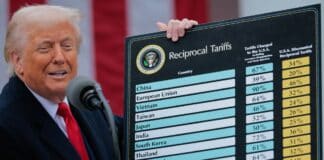On Tuesday, a judge lifted Donald Trump’s gag order, allowing him to speak freely about jurors and witnesses in the hush money criminal trial that resulted in his felony conviction. However, he is still prohibited from speaking with anybody associated to the case until he is sentenced on July 11.
Days before Trump and President Joe Biden debate on Thursday, Judge Juan M. Merchan’s decision gives the presumed Republican nominee permission to launch another attack against his former attorney Michael Cohen, porn star Stormy Daniels, and other witnesses. Trump became the first former president to be found guilty of a felony on May 30 after it was found that he had fabricated documents to hide a possible sex scandal.
After the trial, Trump’s attorneys had pleaded for Merchan to totally withdraw the gag order, claiming there was no need to keep limiting Trump’s First Amendment rights. Trump claims that while Cohen and Daniels are still defaming him, the gag order has kept him from defending himself.
The Manhattan district attorney’s office requested that Merchan maintain the gag order’s prohibition on remarks about the prosecution, court employees, and jurors until after Trump is sentenced on July 11. However, they announced last week that they would be comfortable with Trump making remarks about witnesses now that the trial has concluded.
As a result of what the prosecution claimed was an attempt to conceal a hush money payment to Daniels shortly before the 2016 presidential election, Trump was found guilty on 34 counts of falsifying company documents. Trump disputes her allegation that they had a sexual encounter ten years prior.
The maximum sentence for the offense is four years in prison, although Merchan is unlikely to inflict such a term and the prosecutors have not stated if they would pursue jail time. Probation or a fine are further alternatives.
Trump criticized and tested the boundaries of the “nasty gag order” after his conviction. A day following his conviction, Trump called Cohen “a sleazebag,” but he did not mention him by name.
In a later Newsmax interview, Trump criticized the jury’s composition, stating that “I never saw a glimmer of a smile from the jury” and lamented that Manhattan was “a very, very liberal Ddemocrat area so I knew we were in deep trouble.” No, this was an extremely unfair setting. Republicans make up very little portion of the population.
In a letter to Merchan dated June 4, Trump’s attorneys expressed their belief that the gag order would be lifted following a ruling.
After raising concerns about the presumed Republican presidential nominee’s history of attacking those connected to his cases, prosecutors asked Merchan to maintain the gag order’s prohibition on remarks about jurors and trial staff “at least through the sentencing hearing and the resolution of any post-trial motions.”
They contended that the judge had “an obligation to protect the integrity of these proceedings and the fair administration of justice.” Merchan issued Trump’s gag order on March 26, a few weeks before the trial began.
Merchan later extended it to forbid remarks about his own family following Trump’s attacks on the judge’s daughter, a Democratic political strategist, on social media. Remarks regarding Merchan or the office of District Attorney Alvin Bragg, who brought the case, were not prohibited by the order.
Merchan threatened to put Trump in jail if he broke the gag order again, fined him $10,000, and held him in contempt of court during the trial.
In an attempt to get the gag order lifted, Trump’s attorneys Todd Blanche and Emil Bove contended that, given Biden’s remarks regarding the verdict and Cohen and Daniels’ ongoing public criticism, Trump had a right to “unrestrained campaign advocacy.”





